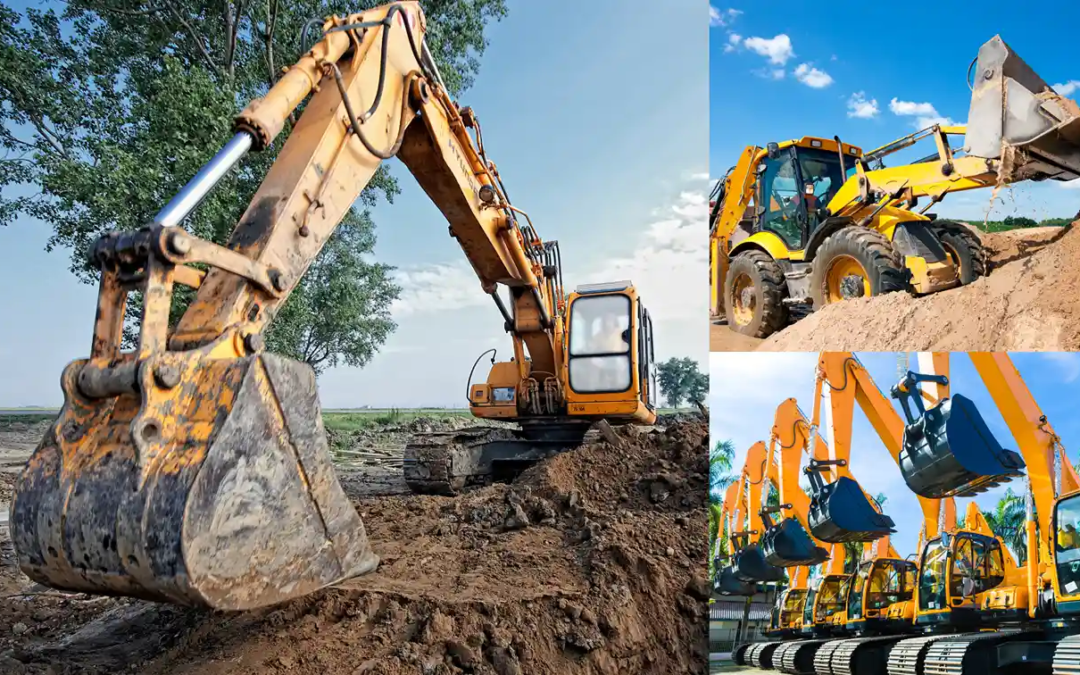Urban construction is becoming increasingly complex, with rising population densities, limited spaces, and stricter regulations. Excavator companies are at the forefront of addressing these challenges through innovative designs, sustainability practices, and advanced safety features. This article explores how these companies are adapting to the demands of urban construction projects and what the future holds for the industry.
1. Introduction
The rapid growth of urban areas has led to an unprecedented need for efficient, eco-friendly, and safe construction solutions. Excavators, essential machines in the construction industry, are evolving to meet these needs. Manufacturers are focusing on urban-specific innovations, environmental considerations, and enhanced safety to tackle the unique challenges of urban construction.
2. Urban-Specific Design Innovations
Urban construction sites are often characterized by limited space and noise restrictions. Leading excavator companies are introducing compact, versatile machines designed for maneuvering in tight spaces while maintaining high performance.
- Compact and Zero-Tail Swing Designs: Compact excavators with zero-tail swing technology are increasingly popular. These machines can operate efficiently in confined spaces without the risk of collision.
- Modular Attachments: Urban projects require multitasking. Excavators with modular attachments like grapples, augers, and demolition tools provide flexibility and efficiency.
- Electric and Hybrid Models: To address noise and emission regulations, many manufacturers are developing electric and hybrid excavators. These models are quieter and more energy-efficient than traditional diesel-powered machines.
3. Environmental Impact Solutions
Sustainability is a top priority for urban construction. Excavator companies are adopting eco-friendly technologies to reduce their environmental impact.
- Emission Reduction Systems: Advanced exhaust after-treatment systems, including Selective Catalytic Reduction (SCR) and Diesel Particulate Filters (DPF), help minimize harmful emissions.
- Recyclable Components: Many manufacturers are using recyclable and durable materials in their machines to promote a circular economy.
- Smart Fuel Efficiency Features: Advanced telematics systems enable precise fuel monitoring and optimization, reducing unnecessary fuel consumption and cutting carbon emissions.
- Noise Reduction Technologies: Innovations like insulated cabins, electric drivetrains, and quieter hydraulic systems reduce noise pollution in urban environments.
4. Safety Innovations for Urban Environments
Safety is paramount in crowded urban construction sites. Excavator companies are incorporating advanced safety features to protect operators, workers, and the surrounding community.
- 360-Degree Camera Systems: Modern excavators are equipped with 360-degree cameras and proximity sensors, offering operators a comprehensive view of the worksite and enhancing safety.
- Operator Assist Features: Automated controls, such as grade assist and bucket assist, reduce operator fatigue and minimize errors.
- Enhanced Stability Systems: Urban excavators now feature improved stability mechanisms, including hydraulic stabilizers and reinforced undercarriages, to prevent tipping and ensure precision.
- Emergency Shutdown Mechanisms: Safety-first designs include emergency stop buttons and fail-safe systems to halt operations in case of an emergency quickly.
5. Future Developments and Trends
The future of urban excavation lies in smart technology, automation, and sustainable practices.
- AI and Automation: Autonomous excavators with AI-driven decision-making capabilities are being tested to reduce labor costs and improve efficiency in urban projects.
- IoT Integration: Internet of Things (IoT) systems are transforming excavators into smart machines that can communicate real-time data about performance, maintenance needs, and site conditions.
- Hydrogen-Powered Excavators: With advancements in clean energy, hydrogen fuel cell excavators are expected to become viable alternatives to traditional models.
- Augmented Reality (AR): AR technology is helping operators visualize excavation tasks in real-time, improving accuracy and reducing rework.
6. Ensuring Reliability
Reliability is crucial for the success of urban construction projects, where delays can lead to significant costs. Excavator companies are focusing on enhancing durability and minimizing downtime.
- Predictive Maintenance: Advanced sensors and telematics systems monitor the health of excavators, predicting maintenance needs and preventing breakdowns.
- Rugged Designs: Excavators built with high-strength materials and wear-resistant components ensure long-term reliability, even in demanding urban projects.
- Manufacturer Support Programs: Leading companies offer comprehensive maintenance packages and training programs to ensure smooth operation on-site.
7. Implementation Guidelines
For effective use of urban-specific excavators, construction companies must follow certain guidelines:
- Training Operators: Proper training ensures operators can fully utilize the advanced features of modern excavators.
- Site Assessment: Understanding the unique challenges of each urban construction site allows for the selection of the right machine and attachments.
- Compliance with Regulations: Adhering to local noise, emission, and safety regulations is essential for successful project execution.
- Collaborating with Manufacturers: Working closely with excavator manufacturers ensures access to the latest innovations and tailored solutions.
8. Innovative Machinery for Urban Construction
Construction equipment manufacturers are pivotal in equipping the construction industry with tools that tackle the unique challenges of urban excavation. These companies constantly innovate to create machines designed for tight spaces, minimizing disruption in bustling cities. With a focus on compact and multi-functional designs, the best construction equipment manufacturers ensure that excavators and related equipment can navigate narrow streets and congested sites.
By staying ahead of trends and focusing on sustainability, construction equipment manufacturers not only meet the demands of urban projects but also set the stage for future advancements in urban excavation technology. This proactive approach cements their role as innovators in the ever-evolving world of construction.
9. Conclusion
The urban construction landscape is rapidly evolving, and excavator companies are rising to the challenge with groundbreaking solutions. From compact designs to eco-friendly technologies and advanced safety features, these innovations are transforming how urban construction projects are executed. As the industry embraces smart technologies and sustainable practices, the future of urban excavation looks promising, paving the way for efficient and environmentally responsible urban development.
Image credit: HAWK Excavator

Recent Comments